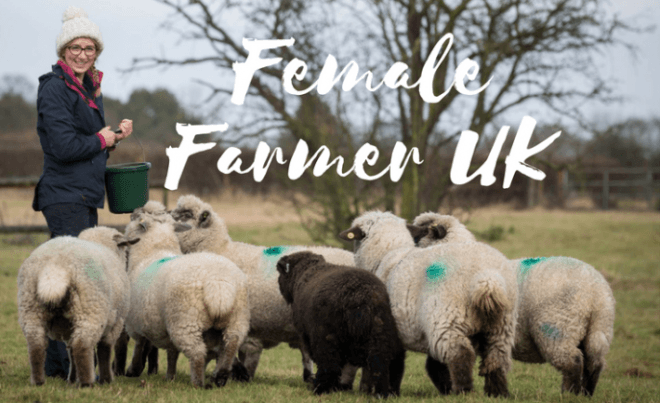Katie Anderson is a farmer and blogger in Kent, England. Her writing work has seen her recognised as a finalist for the British Farming Awards’ Digital Innovator of the Year, as one of Barclay’s Women of the Year 2018, and as runner-up of the NFU’s Young Farmer of the Year in 2017.
She shares her top tips on running a successful farming blog.
1. Write often, but with purpose
- I regularly see posts from bloggers saying “sorry I haven’t written anything in ages, this year I am going to do a blog a week, I promise”, then within a few months it has all gone to pot again.
- You want to create posts consistently to keep your audience interested and your blog in their minds.
- That being said, another common mistake I see is fellow bloggers agreeing to too much content: They will promise a blog every Wednesday and a vlog every Friday.
- This usually ends in one of two disastrous ways; you either burn yourself out and end up hating your blog because you are dedicating too much time to it, or you end up writing rubbish because who has that much stuff going on to write about? Certainly not me.
2. Think about your target audience
- Who do you think will be reading your blog? Do you think it appeals to young farmers, perhaps agricultural students, or those just entering the industry? Or maybe you are writing for farmers looking to hand over their business to the next generation?
- Your audience tends to be similar across your whole blog, but you may write specific posts that appeal to a certain age group or demographic.
- A great example of how to style your blog for a certain audience can be found in the NFU’s Student Farmer magazine https://issuu.com/studentfarmer. Their style of writing and the appearance of their magazine is young and funky, with a heavy use of imagery and young people.
- Compared to the NFU’s Farmer and Grower magazine, targeted for a much older audience, which uses much wordier articles, with images of older farmers and more political content.
3. Write a blog that you would read
- It is so obvious to a reader when a blogger is writing about something that they are not passionate about because it is a dull, lifeless read.
- Do not write about topics because you feel you should, or just because it is topical, or because it will get you the greatest amount of viewers. Blogging should always be on subjects that you enjoy, so make your blog something you would subscribe to.
- I personally like to learn from a blog, therefore I nearly always write educational or advisory posts, but perhaps you prefer imagery or are always drawn to more diary-like blogs.
- Think about what topics you know you could spend hours typing away about on your keyboard. If you write something you enjoy reading, the chances are there will be someone else out there just like you!
4. Re-share your posts
- I made this mistake when I first started blogging: I would write a post, share it once on my social media channels and then move on to writing the next one.
- You have then shared your blog with only a very small percentage of your followers. The chances of every single one of your followers seeing that post and clicking the link that day to read it is very minute.
- Re-share your post on different days and at different times of the day. Then perhaps a month later share it again, maybe its content is still relevant or suddenly topical – you can even share it as “one from the archives”.
- It takes a lot of effort to create a good blog post so don’t waste it by not sharing it with as many people as possible.
5. Follow other bloggers
- Other bloggers are great for inspiration. I am not saying you should steal ideas and not be original, but seeing what other people write about and how they write can help you decide what you do and don’t like when it comes to blogging.
- They don’t have to be other farm-related blogs either. Inspiration for how your blog should look, feel and read can come from any industry or topic.
- It is also good to be part of a blogging community because if you have writer’s block or a sudden creativity burst you have other people to share your experience with who are probably going through the exact same thing.
* Find more of Katie’s Eat Farm Now posts here and check out her blog at www.femalefarmeruk.com and her Twitter account @FemaleFarmerUK.

